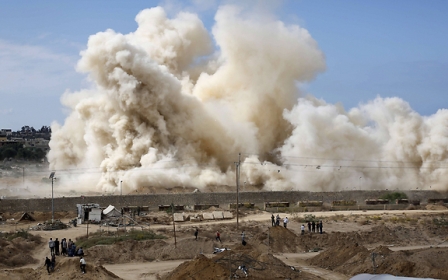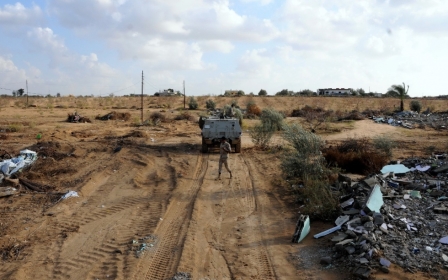UN chief condemns Egypt attacks

UN Secretary-General Ban Ki-moon on Saturday condemned recent militant attacks in Egypt's Sinai Peninsula, in which at least 30 people were killed.
"I condemn in the strongest possible terms this terrorist attack," Ban told a press briefing on the sidelines of the 24th African Union summit in Addis Ababa.
"I would like to convey my condolences to the families of the victims of this crime," he said.
Militants carried out a spate of attacks on military facilities and personnel in the northeastern Sinai Peninsula late on Thursday, leaving at least 30 people dead.
Responsibility for the attacks was claimed in the early hours of Friday by the Welayat Sinai militant group, formerly known as Ansar Beit al-Maqdis.
Active in northern Sinai, the organisation acquired its current name after reportedly swearing allegiance to the Islamic State group.
Egyptian security forces have been waging a campaign against militants in Sinai – which shares borders with both Israel and the Gaza Strip – amid a rise in attacks on army and police personnel since the ousting of elected President Mohamed Morsi in mid-2013.
On 24 October, at least 31 soldiers were killed in an attack on a military site in North Sinai, prompting Egyptian authorities to declare a state of emergency and curfew in some areas of the restive province.
A day later, President Abdel Fattah el-Sisi, in a televised speech, said “the problem of Rafah and the Rafah border line” would be tackled.
Within weeks, the Egyptian military began evacuating hundreds of Egyptian families from their homes in Rafah. Around 800 homes were destroyed and a 500-metre area along 13 miles of the border between Gaza and Egypt was cleared. Top security officials said the aim was to create a buffer zone to prevent weapons and militants from being smuggled across the border.
Earlier this month, Abdel Fattah Harhoor, governor of North Sinai, said that all of Rafah would be destroyed.
Stay informed with MEE's newsletters
Sign up to get the latest alerts, insights and analysis, starting with Turkey Unpacked
Middle East Eye delivers independent and unrivalled coverage and analysis of the Middle East, North Africa and beyond. To learn more about republishing this content and the associated fees, please fill out this form. More about MEE can be found here.




